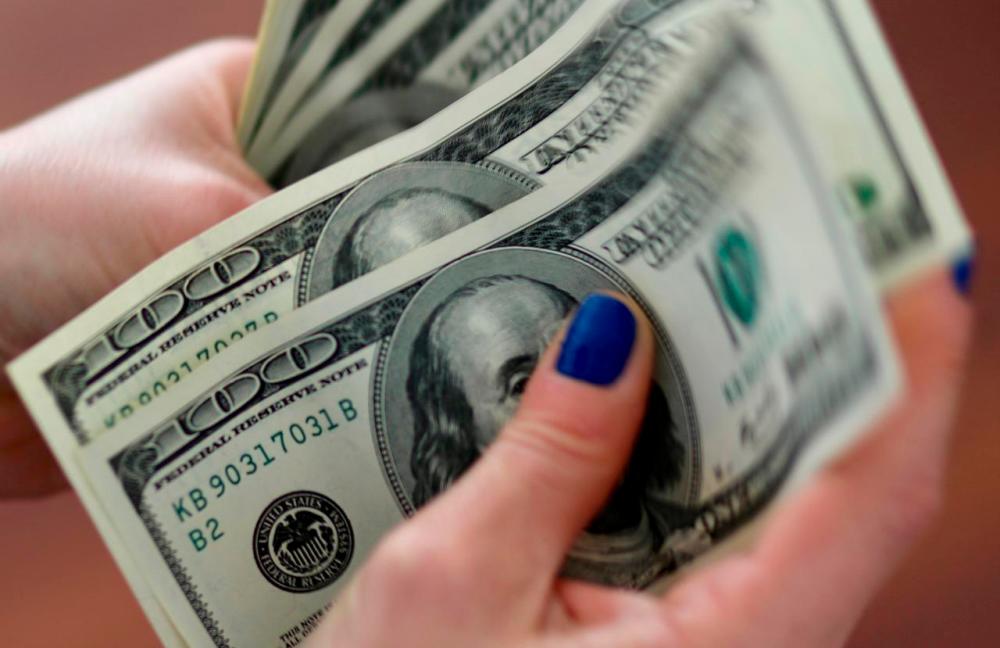SINGAPORE: A resurgent dollar held on to sharp gains on Tuesday after virus fears and worries over delays in fresh U.S. stimulus drove a wave of selling in just about every other asset market.
A public holiday in Japan kept moves in the Asia session modest and calmer trade in equity markets also took some of the pressure off riskier currencies.
Investors are looking to the London open for their next cues. U.S. Federal Reserve Chair Jerome Powell's appearance with Treasury Secretary Steven Mnuchin at a congressional committee from 1430 GMT is also on the radar.
Against a basket of six major currencies the dollar held at 93.519, just below a six-week high hit on Monday.
The Japanese yen, which fell from a six-month peak as greenback gains gathered pace, edged up to 104.57 per dollar.
The Australian dollar recovered from a dip when a senior central banker mentioned negative rates as a policy option in a speech to trade steady at $0.7223.
"There was a flight to safety into the greenback and bonds from the sell off in equities," strategists Philip Wee and Duncan Tan at Singapore's DBS Bank said in a note.
"Sentiment will remain weak if (Powell and Mnuchin) fail to break the congressional deadlock to another round of fiscal stimulus."
Stock market selling, which began in the financial sector after a fresh dirty-money scandal embarrassed global banks, started to moderate during Asian trade on Tuesday.
Futures painted a mixed picture, with tiny gains for Europe's markets and small declines for those in the United States.
Oil exporters' currencies such as the Norwegian krone and Canadian dollar were parked near multi-week lows as oil prices nursed steep Monday losses.
"A lot now depends on whether or not what we've seen in the last 24 hours is sustained," said National Australia Bank's head of FX, Ray Attrill.
"There's good reason to think that we could be in for a multi-week period where the dollar at least stops declining."
JUST A CORRECTION?
Investors are worried that rising COVID-19 cases in Europe and ebbing enthusiasm for fiscal stimulus in the United States, as election campaigning dominates politics, could dent the global recovery from the pandemic.
The euro was held below $1.18 in Asia at $1.1768, while sterling was fragile at $1.2822 amid talk of fresh restrictions in Britain as virus cases grow.
The Telegraph newspaper reported Prime Minister Boris Johnson will encourage Britons on Tuesday to go back to working from home.
Among the most confounding elements of Monday's mini-meltdown was the swift reversal of gains by the Japanese yen, which pulled back from a six-month high as the dollar rose.
The Japanese currency has been among the best performing majors this month as jitters in stock markets have driven safe-haven demand.
"It's not uncommon with sudden yen moves that it's driven by domestic asset managers coming in to buy foreign assets at the lows, and buying dollars to pay for them," said Stuart Oakley, a London-based executive at Nomura.
"But I don't really know what is behind this particular bounce," he said.
"My own personal view is this is all just a correction within a major trend for stronger asset prices in the U.S. and a weaker dollar, with the uber-easy U.S. monetary policy the overwhelming driver of everything."
Investor positioning still has dollar shorts near record levels. Tentative gains in the Chinese yuan , which advanced 0.1% to 6.7880 per dollar, suggests at least some pressure could soon return to the greenback in Asia.
Also on Monday, U.S. President Donald Trump told thousands of supporters at a political rally that he was rebuffed by officials when he asked about adjusting the dollar's value. - Reuters















